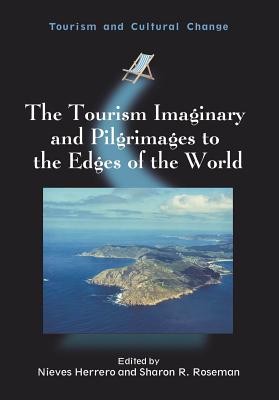
- We will send in 10–14 business days.
- Publisher: Channel View Publications
- ISBN-10: 1845415221
- ISBN-13: 9781845415228
- Format: 14.5 x 20.6 x 1.3 cm, softcover
- Language: English
- SAVE -10% with code: EXTRA
The Tourism Imaginary and Pilgrimages to the Edges of the World (e-book) (used book) | bookbook.eu
Reviews
Description
This book examines how the growth of tourism in locations that have historically been considered geographically remote plays a major role in the consolidation and transformation of often longstanding and powerful cultural imaginaries about 'the edges of the world'. The contributors examine the attraction of the sublime, remoteness, continental border-points, and the dangers of the sea in Finisterre (or Fisterra) in Galicia (Spain); Finistère in Brittany (France); Land's End, Cornwall (England); Lough Derg (Ireland); Nordkapp or North Cape (Norway); Cape Spear, Newfoundland (Canada); and Tierra del Fuego (Argentina). While those travelling to these locations can be seen to be conducting some form of religious or secular pilgrimage, those who live in them have long contended with the implications of economic and political marginalization within global political economies.
EXTRA 10 % discount with code: EXTRA
The promotion ends in 20d.18:55:31
The discount code is valid when purchasing from 10 €. Discounts do not stack.
- Publisher: Channel View Publications
- ISBN-10: 1845415221
- ISBN-13: 9781845415228
- Format: 14.5 x 20.6 x 1.3 cm, softcover
- Language: English English
This book examines how the growth of tourism in locations that have historically been considered geographically remote plays a major role in the consolidation and transformation of often longstanding and powerful cultural imaginaries about 'the edges of the world'. The contributors examine the attraction of the sublime, remoteness, continental border-points, and the dangers of the sea in Finisterre (or Fisterra) in Galicia (Spain); Finistère in Brittany (France); Land's End, Cornwall (England); Lough Derg (Ireland); Nordkapp or North Cape (Norway); Cape Spear, Newfoundland (Canada); and Tierra del Fuego (Argentina). While those travelling to these locations can be seen to be conducting some form of religious or secular pilgrimage, those who live in them have long contended with the implications of economic and political marginalization within global political economies.


Reviews